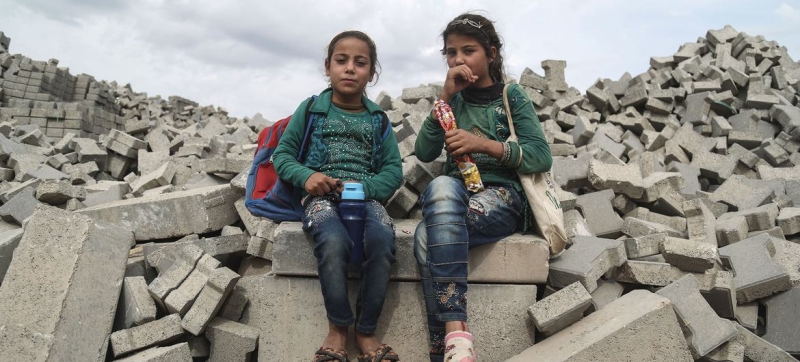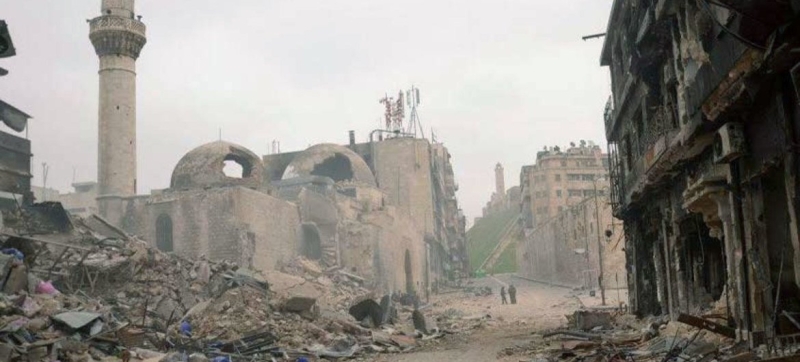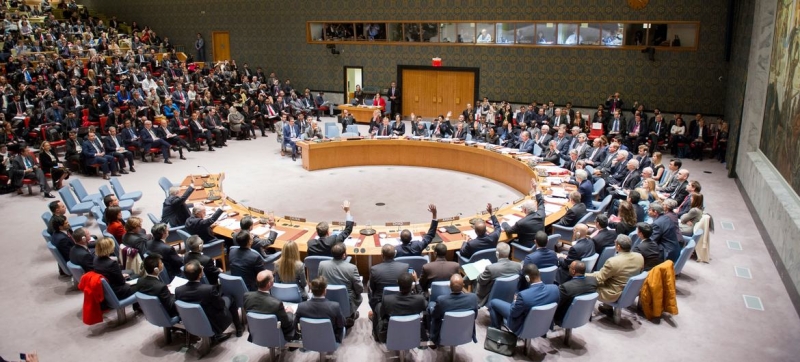
The conflict in Syria has forced hundreds of thousands of families to flee their homes. The Path to Peace in Syria: Great Opportunities, Serious Risks Peace and Security
Syria has entered a period of profound uncertainty since the fall of Bashar al-Assad late last week. The UN has already said it will seek to play a vital role in ensuring the Middle Eastern country’s orderly transition to renewed, stable state institutions, as well as continuing efforts to unite disparate militias and political factions.
As fighting intensified since the outbreak of Syria’s civil war in 2011, UN diplomats have been working behind the scenes to find a political solution that would ensure dignity, freedom and justice for all Syrian people.
Here are some of the key events in which the UN has been actively involved in order to achieve a just peace in Syria.
2012: Early Attempts at a Peaceful Settlement
Less than a year after the pro-democracy protests that swept much of the Arab world in March 2011 in the so-called First Arab Spring led to a brutal crackdown by the Syrian authorities, former Secretary-General Kofi Annan (1997-2006) was tasked with leading efforts to resolve the conflict as Joint UN-Arab League Special Envoy for Syria.
Kofi Annan drew up a six-point plan calling for an end to violence, humanitarian access, the release of detainees, the start of an inclusive political dialogue and unrestricted access to Syria for the international media.
The plan was approved by the Security Council in April 2012. Security Council resolutions 2042 and 2043 led to the establishment of the UN Supervision Mission in Syria, which ended its existence in August of that year due to the escalation of the civil conflict.
In the same year, 2012, the Geneva Communiqué was published, which was the result of a meeting of the Action Group on Syria, which included several Middle Eastern states and the five permanent members of the Security Council.
This document, approved by both the General Assembly and the Security Council, was based on the Kofi Annan peace plan and has since coordinated UN mediation efforts within the framework of a political settlement.

Destruction in Aleppo (archive).
2014: Stalemate in Geneva
Kofi Annan resigned as Joint Special Envoy in August 2012. He was replaced by veteran Algerian diplomat Lakhdar Brahimi, whose tenure coincided with the conflict’s escalation into full-scale war.
In January 2014, then-UN Secretary-General Ban Ki-moon convened an international conference known as Geneva II, which was followed by talks between representatives of the Syrian government and opposition forces, facilitated by Brahimi.
In the end, the parties failed to reach an agreement: Brahimi suspended the talks and did not extend his term in office beyond May 2014.
2015: Passage of a landmark resolution
A breakthrough was achieved the following year, during the mandate of Lakhdar Brahimi’s successor, another top UN negotiator, Staffan de Mistura.
In 2015, as a result of intensive diplomatic interaction between Russia and the United States, as well as other key international players, the International Syria Support Group was created to discuss ways to quickly end the Syrian conflict.
The talks resulted in Security Council Resolution 2254, which set out the sequence and timing of the political transition, including negotiations to establish a credible, inclusive, non-sectarian government, and a process and timeline for drafting a new constitution. It also called for free and fair elections under UN supervision.

Unanimous adoption of Security Council resolution 2254.
2016: Combating impunity for war crimes
Impunity is a hallmark of the Syrian conflict. It impedes efforts to find a peaceful solution and undermines one of the UN’s core principles: accountability.
Throughout the Syrian conflict, the United Nations has worked to investigate human rights violations and closely monitored the activities of terrorist groups: Resolution 2254 reiterated previous calls for Member States to stop terrorist acts by the self-proclaimed Islamic State in Iraq and the Levant (ISIS, also known as Daesh), the Nusra Front, Al-Qaeda and other terrorist groups.
An important step in the fight against impunity was taken on 21 December 2016, when the General Assembly adopted a resolution establishing the International, Impartial and Independent Mechanism (IIM).
The IIM was created to assist in the investigation and prosecution of the most serious crimes under international law, in particular the crime of genocide, crimes against humanity and war crimes.
On 8 December 2024, as news of the fall of the Assad regime dominated headlines around the world, the IIM issued a statement expressing hope that Syrians would finally have a chance to live in a country based on justice and the rule of law.
“Accountability for the untold suffering of the past 13 years must be at the center of future discussions and efforts by both Syrians and the international community,” the document says. “Widespread impunity for all the atrocities committed during this period must be addressed, from the bombing of hospitals to the use of chemical weapons, systematic torture in state prisons, widespread sexual and gender-based violence, and genocide.”
2024: An Era of Hope and Uncertainty
UN Secretary-General António Guterres said on December 8 that the fall of the dictatorship in Syria presents a historic opportunity for the people of that country to build a stable and peaceful future. At the same time, he cautioned that much work remains to be done to ensure an orderly political transition to renewed institutions of power.
The Secretary-General’s Special Envoy, Norwegian diplomat Geir Pedersen, appointed to the post in October 2018, called for urgent political talks in Geneva to secure a peaceful future for Syria, and said key players including Iran, Russia, Turkey and the United States had supported his call.
“This dark chapter of history has left deep scars,” Pedersen told reporters on Sunday, “but today we look forward with cautious hope to a new page.”
The situation in Syria is extremely fragile, and the Special Envoy stressed in a closed-door briefing to the Security Council on 9 December that the situation cannot be overlooked the real opportunity for positive change that now exists.
